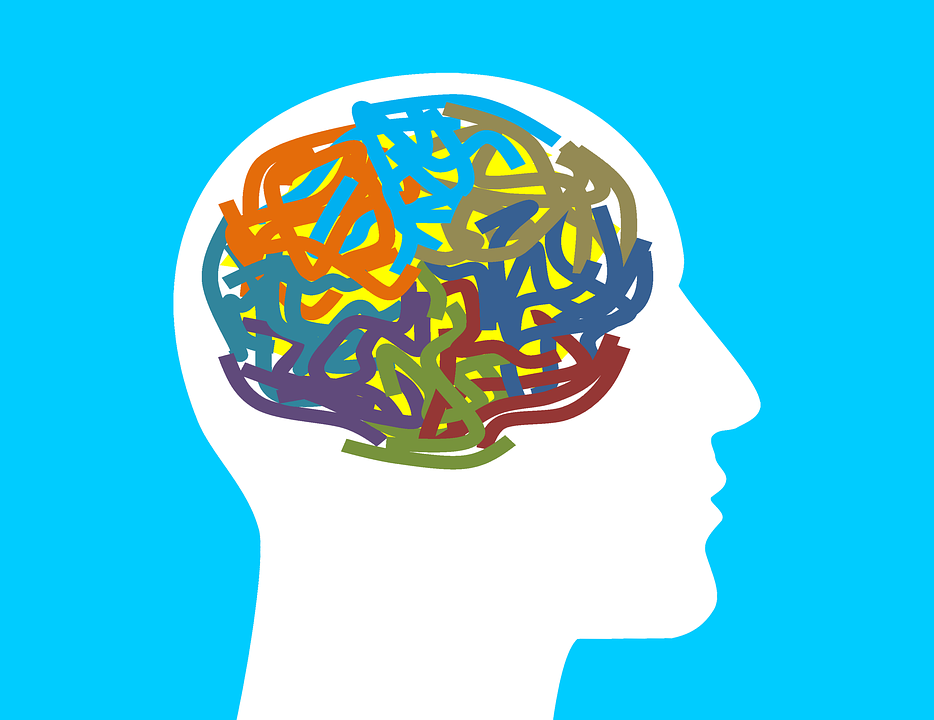The Significance of Mental Health: a Deep Study Counseling, Treatment, and Their Benefits
Psychological health and wellness greatly shapes specific wellness, impacting emotions, habits, and ideas. Counseling and therapy function as essential methods for healing and individual advancement. They use structured support, helping individuals browse life's challenges. Many continue to be unaware of the certain types of treatment offered and their one-of-a-kind benefits. Understanding these elements is necessary for any person considering specialist psychological wellness support. What follows may light up paths to resilience and satisfaction that lots of ignore.
Recognizing Mental Health And Wellness and Its Impact
Psychological wellness is usually ignored, it plays a crucial duty in general wellness and daily functioning - Couples Therapy. It includes psychological, emotional, and social variables that influence just how people assume, feel, and behave. An individual's mental health straight influences their capacity to handle anxiety, associate with others, and choose. Poor psychological health and wellness can bring about different concerns, including anxiousness, anxiety, and problem in keeping partnerships, all of which can hinder specialist and individual growth.Furthermore, mental health and wellness has far-ranging ramifications for physical health and wellness. Persistent stress and neglected psychological conditions can add to different physical disorders, such as heart problem and weakened immune reactions. Alternatively, favorable mental wellness cultivates durability, making it possible for individuals to deal with life's challenges successfully. Understanding psychological wellness's significance is vital for promoting supportive settings that promote psychological wellness, thus enhancing the lifestyle for people and areas alike
The Different Kinds of Therapy and Treatment
In the domain name of mental wellness, different therapy and treatment types accommodate diverse requirements. Private counseling approaches concentrate on personal issues through one-on-one sessions, while team therapy characteristics foster shared experiences and assistance amongst participants. Comprehending these methods is important for selecting the proper treatment for different obstacles.
Individual Therapy Approaches
Numerous private therapy approaches exist, each developed to deal with certain psychological health and wellness worries and satisfy varying client requirements. Cognitive Behavior Modification (CBT) focuses on recognizing and changing negative thought patterns, while Psychodynamic Treatment explores unconscious processes and previous experiences. Humanistic Therapy highlights individual growth and self-actualization, cultivating a helpful environment. Social Therapy (IPT) targets relationship concerns and communication patterns to boost emotional wellness. In addition, Approval and Commitment Treatment (ACT) motivates clients to approve their ideas and feelings while committing to individual values. Each strategy uses one-of-a-kind techniques and approaches, allowing professionals to tailor their methods to the person, thus improving the restorative experience and promoting psychological health and wellness healing.
Team Therapy Characteristics
Team treatment characteristics include numerous therapeutic strategies that utilize the power of common experiences and interpersonal relationships. This type of treatment usually consists of varied groups, fostering a risk-free environment for individuals to share feelings and thoughts. Key kinds of team treatment include support system, which supply emotional support; process-oriented groups, concentrating on social communications; and psychoeducational teams, aimed at giving knowledge about mental wellness issues. The characteristics within these teams can improve self-awareness, as members often assess their actions in relation to others. In addition, team treatment cultivates a feeling of belonging, lowering feelings of isolation. Through shared narratives and cumulative problem-solving, individuals can establish dealing approaches and gain insights, ultimately adding to private growth and recovery.
The Duty of Counseling in Mental Health And Wellness
Therapy plays an important duty in mental health and wellness by offering various strategies customized to individual requirements. These approaches supply professional assistance that can cause significant improvements in emotional health. Recognizing the different kinds of therapy can assist people make educated decisions concerning their mental health and wellness treatment.

Kinds of Therapy Strategies
While different therapy strategies exist, each deals distinct approaches and understandings into mental health treatment - Mental Health Resources. Amongst the most famous are cognitive-behavioral therapy (CBT), which concentrates on changing adverse thought patterns; psychodynamic therapy, which explores subconscious processes and youth experiences; and humanistic methods, emphasizing individual growth and self-actualization. Additionally, solution-focused quick treatment prioritizes locating solutions in today instead of delving right into issues. Group therapy promotes community and shared experiences, while family members treatment addresses relational dynamics within domestic structures. Each method satisfies different demands, lining up with individual choices, issues, and healing objectives. Recognizing these methods assists clients make notified options about their mental health and wellness journey and advertises effective treatment customized to their distinct conditions
Advantages of Professional Support
Many people gain from specialist support in managing their psychological health difficulties. Therapy uses a risk-free area for customers to discover their ideas and sensations without judgment. This therapeutic setting fosters self-awareness, permitting people to recognize patterns in their behavior and establish healthier coping approaches. Professional guidance also offers access to evidence-based strategies that can alleviate symptoms of stress and anxiety, anxiety, and various other psychological wellness problems. Therapists can aid in establishing practical objectives and use support in accomplishing them, enhancing total well-being. The collective relationship between counselor and client is vital, as it promotes responsibility and urges personal growth. Inevitably, specialist guidance plays an important duty in guiding mental health journeys, leading to improved emotional strength and life contentment.
Advantages of Therapy: Recovery and Development

How to Select the Right Therapist or Counselor
How can one browse the often overwhelming process of selecting the appropriate therapist or therapist? Identifying individual demands is necessary; people ought to consider their details problems, whether clinical depression, connection, or anxiety my company obstacles. It is valuable to research study various therapeutic techniques, such as cognitive-behavioral therapy or psychodynamic treatment, to find an appropriate match.Next, possible clients ought to seek referrals from relied on sources or make use of online directory sites. It is crucial to review therapists' credentials, including their education and learning, licensing, and locations of expertise. Setting up initial assessments can help assess compatibility, allowing individuals to assess communication designs and personal comfort.Finally, logistical aspects, such as place, schedule, and charges, ought to also be considered. By thoughtfully considering these aspects, one can make an informed decision, ultimately fostering a healing relationship that sustains psychological health and individual development.
Getting Rid Of Preconception: Welcoming Mental Health And Wellness Assistance
While social mindsets towards psychological health have actually evolved, preconception still provides a substantial barrier for several looking for support. This preconception often materializes as misconceptions bordering mental disorder, leading people to really feel pity or worry concerning their battles. Lots of people hesitate to pursue counseling or treatment because of bother with being evaluated or identified. Overcoming this preconception is basic for fostering an encouraging atmosphere where people can honestly discuss their mental wellness needs.Communities and companies play an important function in this improvement by advertising awareness and education and learning concerning mental health and wellness problems. Campaigns that highlight personal tales can humanize these experiences, urging others to look for assistance without concern. As acceptance expands, individuals may really feel a lot more encouraged to embrace mental wellness support, acknowledging it as an important facet of general health. By taking down preconception, culture can cultivate a society of understanding, concern, and positive psychological health treatment.
Strategies for Keeping Psychological Wellness Beyond Therapy
Treatment provides useful assistance, preserving mental well-being outside of sessions is just as essential. Individuals can implement several techniques to maintain their psychological wellness. Routine physical task plays a necessary function, as exercise promotes the release of endorphins, which boost mood. In addition, a well balanced diet plan abundant in nutrients can significantly affect emotional stability and power levels.Practicing mindfulness and meditation assists people manage stress and establish better self-awareness. Establishing a consistent sleep routine is also basic, as top quality rest is vital for cognitive function and psychological regulation.Engaging in social tasks fosters connection and lowers feelings of isolation. Seeking hobbies or passions can provide a creative outlet and increase self-worth. Our site Establishing realistic objectives and practicing self-compassion permits people to grow resilience. By integrating these approaches right into life, individuals can properly support their psychological wellness past treatment sessions.
Often Asked Concerns

Just How Can I Tell if I Need Treatment?

Identifying the demand for treatment frequently involves recognizing consistent sensations of despair, anxiety, or overwhelming stress and anxiety. If everyday operating comes to be tough or coping systems fall short, seeking specialist support may be an advantageous advance.
What Should I Expect in My Initial Therapy Session?
In the very first treatment session, people can anticipate an introduction, discussion of their reasons for looking for aid, and an overview of the therapist's technique, producing a foundation for future conversations and establishing convenience in the restorative space.
Are Online Therapy Sessions as Effective as In-Person Ones?
Research suggests that online treatment sessions can be as effective as in-person ones. Aspects such as the therapist's qualifications, client engagement, and the restorative relationship greatly affect outcomes, no matter the tool utilized.
Can Treatment Aid With Relationship Concerns?
Treatment can assist people in addressing partnership issues by providing tools for interaction, comprehending feelings, and resolving problems. Marriage Counselling. It promotes much healthier characteristics and encourages personal development, eventually promoting stronger, more satisfying links between companions
The Length Of Time Does Treatment Generally Last?
Treatment duration differs significantly based upon individual needs and goals. Typically, sessions may last from a few weeks to several months, with some people engaging in continuous treatment to deal with lasting concerns and individual development. Cognitive Behavioral Therapy (CBT) focuses on recognizing and changing adverse thought patterns, while Psychodynamic Treatment checks out unconscious procedures and past experiences. Secret kinds of team therapy include support groups, which give psychological assistance; process-oriented teams, concentrating on social interactions; and psychoeducational teams, aimed at imparting knowledge regarding mental wellness issues. Amongst the most popular are cognitive-behavioral therapy (CBT), which concentrates on modifying negative thought patterns; psychodynamic therapy, which checks out subconscious processes and youth experiences; and humanistic strategies, emphasizing personal growth and self-actualization. Team therapy promotes community and shared experiences, while household treatment addresses relational dynamics within familial structures. It is helpful to study numerous restorative approaches, such as cognitive-behavioral treatment or psychodynamic treatment, to discover an appropriate match.Next, potential customers need to look for references from trusted resources or utilize online directories.